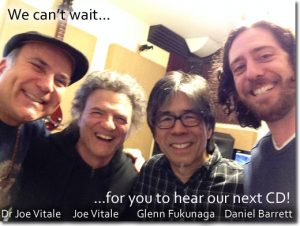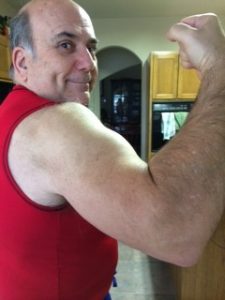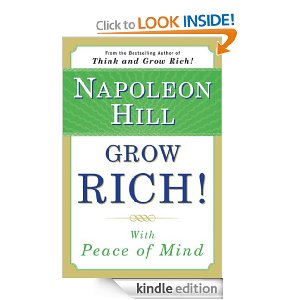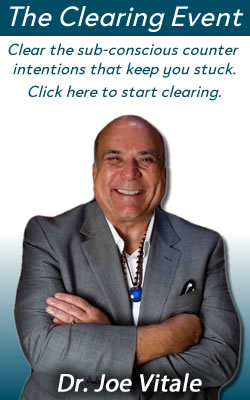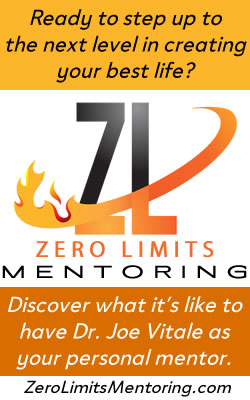Tag: attractor factor
Your Reflection Awaits
I have a question for you…
I would like to send you my latest album, titled Reflection, which is a breakthrough in self-help healing music.
It’s music to soothe, heal, stir and awaken.
Every track is original, and every track conveys a powerful message about life, love, miracles, faith, and more.
It’s all designed to raise your vibration so you can better attract higher levels of consciousness and manifestations.
It works beautifully with the Law of Attraction because it helps program your mind to attract what you want and prefer.
For example –
The song “Love” could be the anthem for a whole generation. It is unforgettable. It will help you love and attract love. When you feel love, you merge with the higher attraction law of the Universe.
The song “Fidem” lets you know the truth about worry. The message is freeing. (“Fidem” means faith.)
The song “Lakshmi” is a powerful song of homage to the Goddess of Wealth and Prosperity. It can help you attract more abundance. (She is a secret in my own success.)
The title track song, “Reflection,” reminds you that the whole world is a mirror — of you. (This song has the potential to trigger an awakening in you.)
The song “Remember” is a beautiful, yet haunting message of how to change your life with a brand new process. (It is way cool.) It was inspired by “The Remembering Process” book (coming in April).
The song “Do” is a pep talk to get you moving. It could help you overcome procrastination and fire you up for the day or a work out. The word ‘action’ is in the phrase ‘law of attraction.’
The song “Believe” lets you know what to do when no one seems to believe in you or your dreams. We live in a belief driven universe, so this song is timely and powerful.
I could go on and list every track and the story behind each, but you get the idea.
This new album is a-maz-ing.
I got my band back together — Daniel Barrett, Glenn Fukunaga, and Rock and Rock Hall of Fame drummer Joe Vitale (yes, he has the same name as me) — and we created this new album of ten tracks just for you.
It’s self-help healing music at its best.
It’s music that transforms.
And I want to send it to you.
The album on CD – complete with a beautiful printed book revealing all of the lyrics and including photos of me and the band – is at the printer right now.
It will be a limited edition collectible, because I am only printing a small quantity of 1,000 to offer to my readers and friends (like you).
It will sell to others for $21.95 but when you go and pre-order it right now, you can have it for only $9.95 (plus shipping, of course).
That’s well over half off.
That’s only a dollar a song.
For less than ten bucks, you can change your life through sound *and* get a collectible new album and booklet, too.
Plus I will include a surprise gift when we ship the new album to you in April.
(You will love it.)
May I send it to you?
Just go see http://www.reflectioncd.com
Expect Miracles.
Ao Akua,
Joe
PS – This offer will last until May 1st, 2014. Please go order one or more albums (think of your family and friends) right now while it’s on your mind at — http://www.ReflectionCD.com
Overnight Inspiration
An important FedEx package arrived today and I found myself thinking, “Gosh, where would we be without this great company?”
It’s even more amazing when you consider the struggles FedEx founder Fred Smith had in the beginning trying to get his company off the ground (no pun intended).
He had such a hard time getting enough cash flow to make payroll that at one point he “raided the family’s trust fund without his sister’s permission.” (He was sued for that.)
For a while, he met payroll by borrowing money from a bank in Chicago that kept him going until one day they refused – “That’s it, Fred. Sorry.”
This is where the story gets rather astonishing.
After being turned down, he was headed back to Memphis with a heavy heart, knowing he would have to tell his employees he couldn’t pay them.
Standing in O’Hare airport, he “noticed” a departure for Las Vegas. He took the company’s last $5,000, jumped on that plane, and, well, the rest is history.
Needless to say, they made payroll and are still here delivering packages to my door.
What happened that day in the airport?
And whatever “it” is, wouldn’t you like to have it, too?
Well, you do… and this is the subject of my newest audio program with Nightingale-Conant – “The Zero Point: How to Enter the Realm of Limitless Possibilities.” http://thezeropoint.info/
You see, Fred Smith needed an answer right now.
He’d done everything he could to make his company a success. He’d put his own money into it, all he had. And it had worked, but he needed to go to another level and had no idea how to do that.
He needed inspiration.
Now I’m not a gambling man in the strictest sense of the word. And apparently, Fred Smith isn’t either, because I understand he hasn’t gambled since.
But that day, he received inspiration, followed it – as bizarre as it seemed to him and later, to others – and it led to him being able to pay the employees who he knew depended on him.
Inspiration works in some pretty interesting ways – if not downright crazy. At least, they can seem so at the time.
Certainly that’s how it felt when I heard the whisperings inside myself to become a musician after spending decades becoming a writer.
And look at what’s happened as a result of my following it…Seven CD’s in record time (okay, okay, enough with the puns).
Where do these ideas come from?
I call it the Zero Point.
For 10 years, I’ve been practicing and teaching about a little known, virtually untapped, awareness we all have inside ourselves.
It’s literally your point of power – the power center of the world itself, a world of miracles and Divinity.
It’s all based on the Law of Zero which is deeper and beyond the Law of Attraction or the Law of Creation.
So let me ask you…
Are you ready for inspiration, too?
If so, go here – http://thezeropoint.info/
Expect Miracles.
Ao Akua,
Joe
PS — You may know about the Law of Attraction, but if you are ready to discover the higher laws of living a life of magic, miracles and more, then please go see http://thezeropoint.info/
Jimmy Carter's Question
Back in 1976, Jimmy Carter was running for US President and I was escaping from college at Kent State University.
I read his book, Why Not the Best?, and was fascinated. When Jimmy came to Ohio, I arranged to meet the candidate twice. It never went anywhere – well, it did for him – but I always remembered something I read in his book.
Jimmy told the story of applying for a job in the Navy and being interviewed by Admiral Rickover.
The Admiral asked how Jimmy stood in his graduating class at the Naval academy.
“I came 59th in a class of 840!” Jimmy proudly announced.
The Admiral asked in return, “Did you do your best?”
Jimmy paused and reflected — something I’ve always admired about him — and honestly admitted that no, he had not always done his best.
The Admiral replied, “Why not?”
This interaction caused Jimmy Carter to base his entire presidential campaign on doing the best. It also triggered the title of his 1976 book. And of course, he went on to become the 39th President of the United States.
That story made an impression on me back in 1976 and never left me. It’s still with me today.
Whenever I complete a project, I always ask myself, “Have you done your best?”
I won’t allow myself to slide and flippantly answer the question. I make myself really reflect.
Have I really done my best?
Is this all I can do?
Will a little bit more time and effort make it even better?
I often rewrite my books fifty times.
Or more.
I often rewrite these blog posts dozens of times.
Or more.
When I was completing my new songs for my forthcoming album, Reflection, I rewrote each a dozen times.
Or more.
And when I got into the studio with my band, I rewrote the songs again.
Why?
I was urging myself to do my best.
I was asking myself, “Have you done your best?”
When you look at the question from a sincere perspective, and don’t allow yourself any wiggle room in squirming out of an honest answer, you can usually see that you have not done your best.
At that point it’s up to you to make a decision and make it your best.
One of the reasons I have been so successful in so many fields is this stance of disciplining myself to do my best.
Even when I work out, following the advice of Bill Phillips and Scott York in my gym, I am always checking in with myself.
I simply ask myself what Jimmy Carter was asked: “Is it your best?”
If it isn’t, I work some more.
When I decided to be a writer in the 1960s, I would walk to the public library (two miles each way) and spend the entire day there studying books on writing. I remember pushing myself to learn the craft.
I would sit at a desk and follow the exercises in the books I was reading. I didn’t know about The Carter Question at the time. I was simply following my passion.
But ever since 1976, I’ve turned on the after burners and really question everything I write or create.
Is it my best?
Can I do better?
And now that I’ve taken up the saxophone, I’m doing the same thing.
I read the books, listen to the great players, study lessons online and with a personal tutor, and I always, always, always ask myself the Jimmy Carter question —
“Have I done my best?”
Again, being ruthlessly honest is the ticket to escape self-deception and self-sabotage.
Of course, you have to let go at some point and share your work with the world. But most of us are lazy and release mediocre work.
With such overwhelming competition in today’s world — there are 1,000 books published and 3,000 albums released weekly — it behooves you to do your best and only your best.
Good enough won’t cut it.
What about you?
Did you do your best?
Ao Akua,
Joe
PS – Late last year I noticed that Jimmy Carter was still working with Habitat for Humanity to raise funds and build homes. I instantly jumped on board to support Carter and his cause. I won first place in the fund raising contest and did well enough to receive an autographed photo of Jimmy and his wife, and won a free trip to New York City (which I passed to the second place winner). You can see the fund raising page I put up and promoted at http://helpbuild.habitat.org/site/TR/CWP/General?px=1936753&pg=personal&fr_id=1280
Your Brain Explained
My new favorite author just wrote the below “short explanation of nearly everything.” I love it and want to share it with you. It’s written by Dr. Loretta Graziano Breuning, author of Meet Your Happy Chemicals and other books I love. If the chart is hard to read, click on it to go to the author’s site, or download a full-sized PDF of the chart at http://www.innermammalinstitute.org/wp-content/uploads/2013/12/happy-chemicals-poster.pdf (Used here with her kind permission.)
Napoleon Hill's Final Secret
When I look around my office, I see success literature everywhere.
One of my favorites, especially in my early years, was Napoleon Hill’s classic, Think and Grow Rich.
You know that one. But I wonder if you know about another, smaller book he wrote 40 years later, when he was nearly 85 years old, called Grow Rich with Peace of Mind.
He said he wrote it because he wanted to demonstrate more fully not only that “there is more to life than making money” but also “that peace of mind in itself is a mighty force in helping you make money.”
He’s right on both counts.
But here’s something else he wrote – something intriguing you might easily overlook:
“I have said this book has been nearly 70 years in the planning. Quite true, but until recently I did not know it. I believe we are all guided by invisible sources of inspiration, and recently there came to me inspiration from a strange and very real source, revealing how much of my life has been spent in preparing me to write these pages, urging me to uncover my typewriter and get to work.”
Just reading that gives me chills — especially in light of my newest audio program with Nightingale-Conant – The Zero Point: How to Enter the Realm of Limitless Possibilities.
What is this invisible source of inspiration that Napoleon Hill describes?
The Zero Point.
The White Board.
Source.
Divinity.
Witness.
All that is.
Zero is not something “out there.”
It’s something within you, intrinsic and innate, that whispers to your heart, “Be this…Do this…”
It includes your mind, but goes beyond your mind.
It’s how you can think bigger than ever before.
Zero is alive – and you can make a request of it that is so magnificent that you’re constantly able to live a life of consistent expectancy.
This is not the same as intending something.
Intentions are from your ego, based on your past.
They’re based on what your mind thinks is possible, which means that intentions are based on current data.
They have built-in limitations.
Inspiration, on the other hand, can blow your mind.
How do you receive this kind of inspiration?
As I wrote in my recently released book, At Zero: The Quest for Miracles through Ho’oponopono —
“The key to modern day Ho’oponopono is letting go of any and all programs, so you can be one with Divinity, otherwise called at Zero. The secret is to delete the programming as you become aware of it. When you do, Divinity will come to you and through you.”
I believe when Napoleon Hill talked about peace of mind and inspiration, he was referring to the Zero Point. I believe he was quite familiar with it.
How else could he have written a book that reached around the world as many times as Think and Grow Rich?
Just as I said in my new audio program, the promise of Zero, of awakening to your Divinity, is such that it will “help you create limitless possibilities for yourself, your family, your friends, and the world at large – from this day forward, a new level of peace, joy, and confidence.”
Napoleon Hill – he was my kind of guy.
Inspiration was his secret, too.
Ao Akua
Joe
PS – Research shows you can change a habit in 30 days but you need help to do so. Here’s a new way to do just that when it comes to attracting more money My Wake Up Calls.


